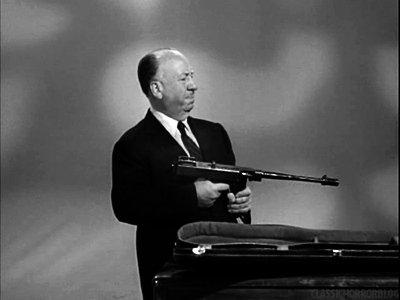This piece was originally published in the Dec. 1995 issue of Esquire. It is reprinted here with the author’s permission.
Escape From New York
It is early morning in Miami, still dark, black water lapping at the dock overlooking Biscayne Bay. But here in this cold, cranky bloodshot hour that so injures a sportswriter’s metabolism, Pat Riley is undaunted, optimistic. “Fresh as a fucking daisy,” his forlorn assistants used to grumble as they disembarked from all those red-eyes. Riley’s come to chase the dawn. He sits on the concrete dock, not his dock, but a backdrop he’s chosen to heighten the dramatic effect, anticipating in his own supercharged way the new day, the new season. He’s maximizing the metaphor. There will be sunrise, rebirth, even redemption. “Gonna be great,” he says.
I groan, as enthused by all this predawn energy as by the headless, hardened baitfish on which I’ve been sitting.
Almost two decades have passed since Pat Riley chased the dawn with such purpose. That was back on State Beach in Santa Monica. Riley was morose and mournful, an exile wandering the beach with a bushy beard. He was 31, at the end of a nine-year career in the National Basketball Association, a journeyman who lacked a guard’s skill and a forward’s size, a 6-foot-4 white guy who had to bust his ass just to stay around, whose greatest talent—no, make that virtue—was to beat the shit out of Jerry West in practice. For Pat Riley the ballplayer, everything came the hard way, even the belated discovery that the game he loved was a cruel mistress. She didn’t say thanks. Or goodbye. And she really didn’t care how much you busted your ass.
“I was hanging out, all pissed off, writing everything down on legal pads,” he says. “600 pages of verbal diarrhea blaming everybody for my… demise.”
He winces with the remembrance. He and his wife, Chris, had driven to the beach in a ‘76 Chevy van with chrome pipes snaking out from under the chassis. For three days, husband and wife huddled under blankets, waiting for dawn’s early light. And for three mornings, Santa Monica remained shrouded in fog.
“Everything happened so quick,” he says. “I don’t think of myself as old, but here I am, 50. And I gotta deal with that. 14 years ago, I walked into the Laker locker room as head coach. Today, my daughter is seven. It’s like you wake up and say, What the hell happened? How did Elisabeth get to be seven? I do think I missed a lot, living in this game. But I’ll tell you what, I’ve never been around anything that made me feel so fucking alive.”
He spits into the wind. Like a ballplayer. Like his father, the baseball minor-leaguer, must have once spat.
“If my dad were alive, I could see him taking out a bucket of range balls—you know, he never played a course, but he kept a bucket of these old cut, beat-up range balls in the car—and he’d just hit ‘em into the water. Plop. Plop. Plop.”
Riley recalls the dapper manager of the Schenectady Blue Jays, the “hard-ass dad” to whom he so often refers with rage and rebellion, regret and respect. “I think I’ve come to terms with that. With him,” he says. But the voice of Lee Riley is always there, like a rude wind in his ear, even at the edge of this tropical metropolis, at the outset of yet another season. The son can imagine him turning from the tee, spitting, looking him in the eye, telling the youngest of his six kids: “You don’t know how good you got it, Pat.”
With all these years between father and son, between State Beach and Biscayne Bay, Pat Riley is someone his old man could never have imagined. He stands to make almost $40 million in his new job, running the Miami Heat. Amid a culture of mutinous millionaires, he’s kept his authority intact, almost unchallenged. And in doing so, he’s become the best coach in professional basketball, maybe any sport. He’s the winningest, the richest, the coolest. As his coiffure went from Sonny Bono to Gordon Gekko, Riley metamorphosed into a star, the guy who gave coaching some sex appeal. Corporate honchos pay $45,000 a pop to hear him lecture about his book, The Winner Within. He’s the new-age Lombardi, a salesman with a fanatic heart who speaks in dialects that seem derived in equal measure from General Schwarzkopf and Shirley MacLaine. Still, he’s just a few months removed from the first great wound to his image—inflicted, perhaps self-inflicted, during his acrimonious parting from the New York Knicks. Pat Riley left town tagged by the sporting press with a designer label of his own invention: “The Disease of Me.”
The horizon is transforming now, from black to light. Riley sips an herbal mint tea. I’ve finished my coffee but still struggle to wake. It’s Rosh Hashanah, the Jewish New Year, and the sour taste of last night’s seminar at the sports bar is grabbing at the clench in my throat. This is not what I had in mind for the High Holy Days, watching Riley worship the sun at the crack of dawn.
“Shana tova,” Riley says haltingly.
“What priest taught you that?”
“My lawyer. He says, ‘Riley, shana tova.’ I say. ‘What’s that mean?’ He says, ‘It’s gonna be a happy, healthy new year.’ I figure, Damn right. It’s gonna be a helluva year.”
At 12 minutes past seven, the sun erupts against the horizon, beginning its skyward sprint.
“Wow,” says the coach. “Look at that sumbitch go.”
* * * *
On the morning of her seventh birthday, Elisabeth Riley is presented with strawberry pancakes topped with whipped cream and a batch of cupcakes to be shared with her classmates. She has a new hat, which she uses to hide her eyes and her smile. Daddy wants a birthday kiss, but Elisabeth won’t budge. It’s all very cute, but also enough to make you feel for the poor guy who’ll show up at the door one day and say, “Coach, I’m here to take Elisabeth to the prom.”
“She gets kind of shy,” Riley explains. “She doesn’t want to kiss Daddy in front of a stranger.”
There’s a tug at my arm. James Patrick Riley, age 10, wants to show me his room, his dazzling array of on-line electronics beneath an autographed picture of Macaulay Culkin. There are laptops and PCs, digital games and a synthesizer. The boy is already fluent in the language of computers and music. There’s an awkward moment as Riley enters. It’s one thing to answer questions about rebounding and defense; it’s another to allow the interrogator into your home.
As James explains his place in the World Wide Web and his designs for computer chips, Riley makes his way to the synthesizer, touching the keys gingerly. I’ve never seen him so close to awe. When he speaks, it’s to no one in particular: “James has a different thing than his daddy. James will be different than I am. But that’s okay. That’s fine. That’s good.”
Somehow, Riley’s been made to feel grateful, maybe even liberated. This slight, sandy-haired boy has, in his own way, broken the chain, the tug and the tether that existed between the fathers and sons in this coach’s clan.
I see a different Riley in his son’s room that day. It reminds me of what a friend said about him, someone who had known him as both enemy and ally. “What you don’t understand about Pat,” the friend said, “is what it was like to be poor and Irish in the 50’s, what it was like if your father drank too much. You only showed your best face to the world. Whatever happened in the home stayed there.”
Leon Francis Riley was a ballplayer, too. In 1944, in the middle of a war, the Philadelphia Phillies finally brought him up to the bigs, where he hit a double in 12 at bats. He was already 38. But he still stayed around. “In 22 years, he gets a cup of coffee and a promise that they’d give him the next coaching job that opened up in the big leagues,” says Riley. “He gets passed over, and he just says, ‘That’s it.’ He went home and burned everything that had to do with his baseball career. I never got a fucking thing.”
It wasn’t long before the old man was full of drink and despair. “The 50’s,” says Riley, “were hell.” But the hellishness remained behind closed doors.
Riley was nine, hiding in the garage and weepy from a schoolyard stomping, when the old man demanded that his kid return to the park, that he learn “not to be afraid,” and that he learn it the hard way. So began his apprenticeship as a tough guy and a small-town basketball star.
The old man wouldn’t sit in the stands to watch his son play for Linton High School in Schenectady, New York. Rather, he’d peer through the crack in the gym door. Riley never even knew he was there until the day a ref whistled him for a charge. All of a sudden, his father staggered out onto the floor. He’d been drinking. Turned out the ref used to umpire games in the old Can-Am League.
“You son of a bitch!” the father screamed. “When you were calling baseball games, you were trying to screw me, too. Now my kid… you son of a bitch!”
“I guess it just kind of crashed for him,” says Riley.
Eventually, the father sobered up and came to gentler terms with his son. But the dapper Irishman of Riley’s youth finished as a janitor at Bishop Gibbons High School. At Pat’s urging, he coached the school baseball team, but only on the condition that he take the field in the green custodial outfit he wore to swab urinals and scrub toilets. “Years later, a lot of those kids he coached told me how much he did for them,” says Riley. “But I think they did something for him, too. Those last years he spent managing in his janitor’s outfit, I think those were the happiest in his life.”
He died in 1970, as Riley was desperately trying to hang on with an expansion team, the Portland Trail Blazers. The way he remembers it, the last thing his father told him was: “Plant your feet, and kick some ass.”
Riley would go on to kick a lot of ass. But no matter what—the accumulation of championships or money or fame—it was never enough to silence the voice that kept telling him, Go back to the park.
“I guess all that has a lot to do with how I am, the Irish part. I guess that’s why I have a hard time letting anyone in,” he says. “We kept it in the family. Whatever problems we had in the family didn’t go out. And it should be the same way with the team.”
Riley guards the interiors of his life in ways both Nixonian and noble. His is a necessary strategy for the rich and famous. But more than that, he considers his family a team and his team a family. Riley, of course, would be the patriarch of both. If this coach had theme music, it would be “We Are Family” set to bagpipes. He divides the world into friends and strangers, us and them. “It’s okay to hurt,” he says. “You just can’t let them see you hurting.”
* * * *
For the first time, though, you can sense the wound. He’s still in control, as it were, but ill humors now surface when he speaks of them back in New York. His feelings are hurt.
“In 28 years in this game,” he says, “I had never been tainted. Now I don’t care how they finish me off in New York. But questioning my character? That pisses me off. I’m embarrassed by what happened. As a coach, I’m embarrassed.”
Yes, it ended badly for him in New York, and, yes, most of us in the press box will be finishing him off for some time. But to understand how bad the end was, understand first how well it began.
The Knicks had spent too many years as a tired joke in a city whose fans still reveled in their belief that they were the game’s true connoisseurs. Now enter the coach with the hair and the clothes. That’s how it started. Riley had won four championships with the Lakers of Magic Johnson and Kareem Abdul-Jabbar, but no one understood how good he was. And if it weren’t for the Knicks, no one ever would.
There was a particular type of ballplayer—hungry and a bit angry—who blossomed under Riley. There was Anthony Mason, a rebel bruiser who’d grown up in the cracked-up, 9mm culture of southeast Queens and served his basketball time in such remote purgatories as Venezuela and Turkey. And there was John Starks, not far removed from a stint bagging groceries at a Safeway in Tulsa. The Knicks would never be the Lakers, but by unleashing the snarling talents of guys like Mason and Starks, Riley got them good fast.
The Knicks went at other teams the way their coach had gone at Jerry West. Just as Riley once jumped center for Adolph Rupp at Kentucky, for a team known to posterity as Rupp’s Runts, the Knicks could be considered Riley’s Runts. What they lacked in talent, they made up in heart, hustle, and hard work. At the same time, the Knicks evolved unlike any other pro team, their identity derived not from their star players but from their star coach.
There were more than a couple of guys in the pressroom who didn’t buy into it, who privately regarded Riley in terms that ranged from suspicion to contempt. They had their reasons. As Riley defined the world, sportswriters were not only “them,” but part of a subspecies he called “peripheral opponents.”
We’d gather as inbred rivals, a caravan of harried, overworked typists in various states of dishevelment, a profane chorus of beat writers and opinionists (the louder, the better), professional exaggerators hyperventilating for pay, more than willing to spin prowess into virtue and mere flaws into evil.
The sportswriter endures myriad minor indignities. But Riley made them all worse. He didn’t give out his home number, didn’t do golf outings, didn’t kill anyone off the record. His band of monosyllabic millionaires would stay at the Four Seasons while the rest of us were consigned to Marriotts for the bonus points and those less-than-dirty movies known throughout the profession as Spank-O-Vision. Riley’s guys dined on silver and china like knights at his round table while we hustled chicken fingers on the buffet line. Riley closed practices, making us loiter in the parking lot so that we might catch those pearls from Starks (“We have to focus more”) or Patrick Ewing (“Most definitely”) or Charles Oakley (“Whatever, whatever”) as they made their way to their Mercedeses and their all-terrain vehicles.
Riley stood in stark juxtaposition to the whole sports culture, and for that alone I wanted to cheer. He kept his distance from the hangers-on, the autograph seekers, the ticket scalpers, and all those guys screaming on the radio. We suffered from bellies and baldness and nose hairs. But Riley was pressed perfect. He took not a step on the StairMaster, and he never got old.
If you only knew our resentments, the smell of that sweaty serum as we’d gather for his postgame press conference, full of deadline dread. There’s some maniac cursing you back at the office, there’s an asshole TV guy probing your vertebrae with his microphone. And here comes Riley. You ask him X’s and O’s, he gives you the philosophy of “Force.”
And he’s fresh as a fucking daisy.
Eventually, the nerds would exact their revenge. But during the honeymoon, who cared? Riley may have been a bit—how to put it?—extreme, but he had his own lunatic virtues, which was a lot more than could be said for some of the tobacco spitters and two-bit felons we glorify. Of course, I could hyperventilate with the best of them. And by the time I got through with Riley, he wasn’t a basketball coach. Hell, no! I’d turn that sumbitch into Henry V and every playoff game into another Agincourt.
* * * *
Honeymoons always end, though, and badly in a town like New York. The Knicks finished the 1993–94 season—Riley’s third with the team—just seven points shy of a championship. But we spent most of the playoffs bashing them, mouthing the displeasures of the connoisseur fans whom we both pandered to and served. Along the way, another perception had been born: If the Knicks represented Riley’s virtues, they also epitomized his faults. They could be dogmatic bullies, predictable, plodding, even paranoid.
Paranoia was all the rage in the spring of 1994 as Madison Square Garden was being sold from Paramount Communications to Viacom, which in turn would sell it right off to ITT and Cablevision. Life in the Garden became Machiavellian—full of intrigue, subplots, and treacheries. All that, and Riley—who had just taken his Knicks to the finals—wanted a new deal.
He wouldn’t come cheap, either. He wanted a five-year, $25 million extension. He wanted a piece of the team. He wanted to be president of the New York Knicks. He wanted a lot of things.
The Knicks were offering five years, $15 million.
And it never really got closer than that. Just nastier. This last season was hellish—for the coach and the team. The Knicks were still tough, but Riley called them “cream puffs.” They worked their asses off, but Riley called them “unprofessional.” He had his annual blowout with Anthony Mason, suspending him for five games. The strain was showing. And yet, somehow, they regrouped from a lousy start to finish with 55 wins, just two behind the Orlando Magic, a young team but also the most physically gifted ensemble since Riley’s Lakers.
On May 21, the Knicks were eliminated in the seventh game of the second round by the Indiana Pacers, as Patrick Ewing’s last-second finger roll bounded off the back of the rim. On June 15, Riley faxed his official letter of resignation. Then, in an absolute bonehead move, he skipped town, leaving nothing but a statement saying he wanted “ultimate responsibility for all significant aspects of the ball club.” For Riley, it was all about control.
But for Dave Checketts, the Garden boss, it was all about money. Checketts—a bright, ambitious executive who had prospered in this concrete Kremlin, becoming president of both the Garden and the Knicks—was calling Riley a pig without saying as much.
Later, The New York Times would report that on June 5, ten days before he faxed his resignation, Riley’s friend Dick Butera passed the coach’s “wish list” to Miami Heat owner Micky Arison. Among other things, Riley was asking for $15 million in salary, immediate 10 percent ownership of the Heat, another 10 percent over the life of the contract, loans, limousines, credit cards, and $300 per diem in expenses. The memo became the basis for the deal, which, depending on how long Riley stays with the Heat, approaches a worth of $40 million.
So we all got out our book of Rileyisms, The Winner Within, and started quoting. The guy was a liar, a phony; it was about money, greed…. It was about the Disease of Me, the Disease of Riley.
Eventually, Riley would say that Checketts—his erstwhile ally, the guy who brought him in—had used him and lied to himself. He said Checketts had promised him an unconditional release in return for his silence as the Garden was being sold from Viacom to ITT and Cablevision. He said that he needed to be president of the Knicks to insulate him from the corporate intrigue that had doomed so many other Knick teams and coaches. He said they could have cut a deal for about $20 million and the title, but that Checketts refused to budge. He had a lot to say. But by then, it was too late for Riley to repair his reputation in New York.
* * * *
We’re in the limousine heading for practice, rolling down Palmetto Expressway, discussing The Winner Within. Published in 1993, it was a best-selling primer that grew out of his motivational lectures. Only Riley could write a book with motives as mercenary as they were sincere. The Winner Within was dedicated to his father.
But for my $22.95, it was the worst thing the guy ever did. The world no more needed a how-to on leadership, teamwork, and success from Pat Riley than a beauty book from Cindy Crawford. The Winner Within demystified his charisma. It came off like a preachy infomercial. Riley may have been image conscious (he’d sneak a smoke, though never in public), but he was dismal at PR. Now you could read all about “The Core Covenant” and “Core Cracking,” about “Thunderbolts” and “Moving On,” and, most of all, about “The Disease of Me.”
“That book is for people like you,” he says, “for cynics.”
“C’mon, how do you expect—”
“No. I laugh when guys like you roll their eyes; I laugh at the writers and maybe even some of the players who mock it . They can roll their eyes all they want, looking for something to get me on. They don’t understand: It inspires me. It clarifies things for me. I believe that stuff. I live it.”
I ask if he lived it during his departure from the Knicks.
“Have you read the book? I mean, have you sincerely read it?”
“I kind of, you know, went through it….”
“Well, I did exactly what it says. We reached an impasse, and I planted my feet. It was either time to go home or time to go on. I went on.”
We’ve hit traffic. Riley checks his watch and gazes out the window. “I was miserable in New York,” he says quietly.
“Why is it,” he asks, “that no coach lasts more than three or four years in that town? Why are they always looking to get you? Maybe that’s the difference. Look, I am who I am, but I don’t try to get anybody. I don’t go off the record. I don’t leak stories.”
“TEAM TURMOIL,” I blurt out, referring to one of the better back pages at the Daily News, players bitching off the record that the offense sucked, that Ewing took too many shots. “Good story.”
“The Rule of the Gutless,” he says. “I mean, you got something to say, put your name on it. How many unnamed sources lied and ruined people?”
Too much talk of getting and they for my taste. I knew he cared, but not this much.
“Damn right I care. Shit, I was coaching in a city where tabloid and mainstream have come together, where perception is reality. You want a good quote, well, I’ll tell you what, gimme the name of the guy who said it, and I’ll give you a helluva quote.
“Guys would question my character in the paper. But not ever to my face. No, they’d come to practice and ask me about rebounding. Well, ask me to my face. Call me gutless to my face. I mean, what would you do?”
“I don’t know. I’d probably—”
“Damn right. I’d put ‘em on their ass.”
We’ve broken through the traffic now, a little behind schedule, It’s not yet 9:00 a.m., but Riley will still be the first guy in the gym. He’s already choreographed every moment of the day’s two practices. It’s all committed to his blue index cards. He’s got a lot of rookies coming in today. They’ll be hungry. They’ll listen. And he can’t wait. He’ll run them as they’ve never been run before. He gets cheerful quickly.
“I love going to practice,” he says.
* * * *
By noon, about two dozen reporters and cameramen have gathered outside the gym to cover the big event, Riley’s first day. They’re not accustomed to this ritual: waiting. Closed practices are one thing, but this is just a bullshit minicamp for the game’s minor-leaguers, none of whom even figure to make the squad. Still, Riley’s taking his time, looking for a practice player, someone like the guy he used to be.
A few of the writers are thumbing through The Winner Within. They’re rolling their eyes, shaking their heads, reading aloud from page 144: “Riles’ Rule for Kicking the Complacent Ass.”
They’re just beginning to learn about us and them. Soon they’ll discover the Gaelic Bushido. And eventually, “The Disease of Me.” They won’t write it that way, though. Not for some time. And maybe never. It’s different down here. Honeymoons last longer in the tropics. And Riley’s the hottest guy in town. There’s a story in the morning paper about the slick hair and the expensive suits, the caricature. That’s always how it starts.
* * * *
Midnight approaches at Don Shula’s All-Star Cafe, a standard-issue backdrop in the society of sports, a blur of autographed memorabilia, a Bennigan’s on steroids, and just a mere piece in the Dolphin coach’s empire: There’s also Shula’s sports bar, Shula’s steak house, Shula’s fitness center, Shula’s golf course, Shula’s tennis facility, and Shula’s hotel, all of which goes to show how far we are from New York. The instinct of this town, a whiff of boosterism in the humid air, is to deify its coaches.
It’s been a long day for Riley. He ran two practices, had a meeting with his assistants in the car, and another with his son’s principal at the new school. He taped a series of TV spots for the Heat, negotiated his release from Elisabeth’s birthday party in return for the promise of a big family dinner next week. Then he took another round of meetings with his assistants. And here he comes, round midnight, fresh as a daisy.
“Well, Kool Moe Dee, there go the coach,” says a waitress. “I love coach. Coach got it all goin’ on.”
Riley excuses himself for a quick call on his cellular. He wants to check on the kids, the birthday girl in particular. “She understands Daddy,” he sighs. “She understands how he is.”
It’s the children, both adopted, who’ve helped temper his obsessions. “We tried to have kids for 15 years,” he says. “Then they came along and changed our lives.”
The night wears on, a conversation moving toward confession. He tells me that he’ll play golf but only on the rarest of occasions, only with friends, and only if someone cracks a six-pack and heads for the clubhouse on the back nine. He says he wants to drive a black 1949 Mercury, the one from Rebel Without a Cause, that he wants to hear “Chapel of Dreams” by the Dubs, and that he can’t fathom Magic Johnson dying of AIDS.
“He’s special,” Riley says quietly. “I just believe it’s all gonna turn out good. They’ll find something…You know, I remember being with the Lakers, I never thought it would end. But here we are….”
Here we are, all these years later, and I’m wondering what happened to the guy in L.A. who used to drink beer and bullshit with the reporters in the pressroom.
“I used to do a lot of things I don’t do anymore,” he says. “Hell, I was a broadcaster, a traveling secretary. I used to hand out boarding passes to the players for the planes. But that was all before I became a coach.”
I remind him of something he told me: “I’m still the same guy I always was—a prick.”
Riley snorts a laugh. “Look, I drive players. Just like I drive myself. But if I’m a prick, I’m more of a prick to myself. As far as the control thing, people just embellish that. I want to treat my players to the best. If I’m having a team party, I want white tablecloths, I want china, and I want silverware. I don’t want fuckin’ plastic plates. And I want a flower arrangement in the middle. And if the towels are hotel white, hey, put some color in there, I don’t give a shit. I want my team to fly first-class, to stay in first-class hotels. I’m gonna ask them to do a lot. So tell me, is that wrong, wanting them to have the best?”
In Riley’s world, coaches can be pricks, but they can also be patriarchs. He speaks of coaching as if it were theology.
I ask him about Adolph Rupp.
“I knew he would make me better. He was a little like my old man,” says Riley. “He was the only coach who ever scared the shit out of me.”
Rupp was also the game’s last unabashed segregationist.
“He was a great coach. Period. I learned more about coaching and detail and organization from Adolph than I learned from anybody…. Look, was he a hard man? Yes. Was he a disciplined man? Egocentric? Powerful? Yes, he was all those things. But racist?” A pause now: Riley trying to reconcile his loyalty with the facts. “When I was there, I never once once sensed he was racist. It was the Southeastern Conference in the early to mid-60’s. There weren’t any black players. Just weren’t. Wasn’t until we got beat by Texas Western and Big Daddy Lattin dunked on my ass that we even started thinking about it.”
Texas Western—now the University of Texas at El Paso—an all-black team of transplanted city kids, beat Rupp’s Runts for the NCAA championship in 1966. Then Riley watched Rupp walk off “holding a brown paper sack by the throat.”
It brings a grimace to his face. “Hell, I didn’t care. I mean, I was raised in a family where my old man would do the same thing…. Anyway, years later, Bob McAdoo told me that was the game that changed everything. He said it made it okay for black players to go to school in the South.”
McAdoo, the great scorer, played his last best days in the NBA for Riley’s Lakers. Now he’ll be one of his assistants.
I ask if McAdoo got the job because he’s black.
“I would never hire anyone for that reason,” he says. “I’ve only hired coaches because they’re the very best.”
It’s been years since Riley had a black coach on his staff. That said, he’s almost never kept a white guy at the end of the bench. And it occurs to me now that Riley—a great general but willfully ignorant of such political arts as compromise—is doing the only job for which he’s temperamentally qualified. Coaching is the last accepted American autocracy. No need for PC. Just win, baby.
Which could be a problem down here. The Heat have never been hot. Theirs is an inglorious history, a grand total of two playoff wins. Last season’s record: 32–50. Cell phones could be heard ringing during home games. As a bunch of losers, this team is only flattered by comparisons with the pre-Riley Knicks.
“Well, we’re gonna have to do something,” he says. “Something dramatic.”
He takes a small sip of beer and declares: “This is my last run, without a doubt. I’m gonna coach like hell to try to win it. I’m committed to that goal. But if I don’t ever win it again, well, I’m not gonna chase that dream into my sixties or seventies. That’ll kill you.”
So that’s it. The show closes in Miami. There’s only one thing left to ask, an intrusion into his most private sanctum, the secret life of Riley:
“What’s that stuff in your hair?”
“Little gel, little water. Takes two minutes.”
“Nah, what kind of gel?”
“We gotta give someone a plug?”
“C’mon…”
Finally, reluctantly, he says: “Sebastian.”
And the clothes?…They’re really all Armani?”
“Yeah.”
“Why?”
He looks at me with disbelief, even irritation, squinting until the hint of a grin forms at the corners of his mouth. “’Cause it’s good shit, that’s why.”
He pauses again, tripping through his own chapel of dreams. “My father was a dapper guy, swept his hair back, used to wear these shirts back in the forties, gabardine shirts—big collar, big pockets. My dad was dapper. He wouldn’t let you out of the house unless you were groomed and clean and looking good. I was taught to peg my own pants in second grade. I only had one pair. Washed them every night. Put ‘em in the stove to dry ‘em for the next morning. Then l’d iron them before I went to school. And one time, I left ‘em in the stove too long and they got griddle marks. The kids teased me, ‘Hey, Riley, what’d you do, cook hamburgers on your pants?’”
Last call is long gone by the time we get up to leave. Riley stops in front of a men’s store in the lobby, pointing to a shirt in the window.
“See,” he says. “That’s like one of those gabardine shirts.”
He gazes at the shirt in much the same drifting, awestruck way he considered his son’s electronic piano.
It’s late. The sun will be up in just a few hours. I tell him goodbye.
But he’s still lost in some recollection that gives the cloth form, animation, even life.
I’m almost at the door when he calls back. “Hey!… Shana tova.”
And a top of the morning to you, too, Coach Riley.
[Photo Credits: AP and Nathaniel S. Butler/NBAE via Getty Images]






























